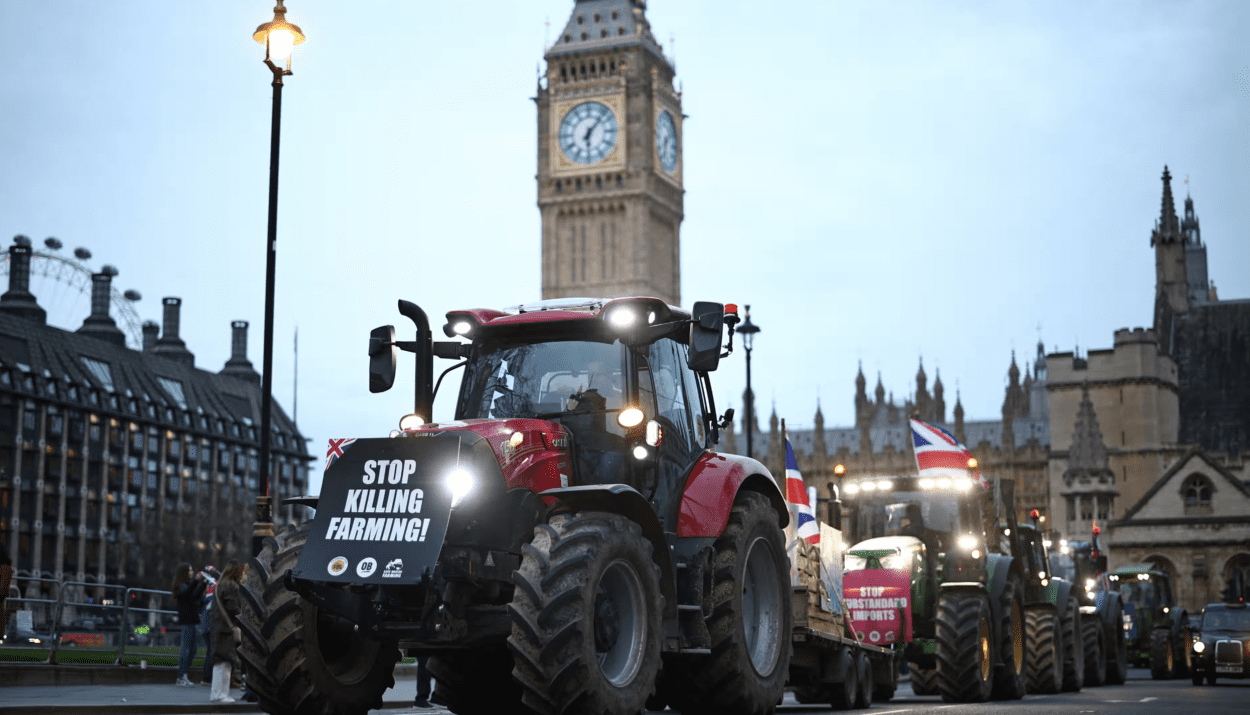Thousand farmers to rally in London over new inheritance tax rules, claiming it threatens family farms.
Farmers across the UK are mobilizing to protest changes to inheritance tax, introduced in last month’s budget, which they argue will undermine family farms and food security.
- What are the changes?
- Agricultural Property Relief (APR): Previously allowed farms to be passed down tax-free.
- New rules (effective April 2026):
- Tax-free inheritance capped at £1m for combined agricultural and business property.
- Assets exceeding this amount taxed at 20% (lower than the standard 40%).
- Taxes payable over 10 years interest-free, rather than upfront.
- Government’s stance:
- Aims to raise £200m annually for public services like the NHS.
- Claims small farms will remain unaffected, impacting only 500 estates annually.
- Critics challenge these claims:
- Changes combine APR and Business Property Relief (BPR), impacting more farms.
- Expensive machinery (e.g., combine harvesters costing £500,000) quickly erodes the £1m threshold.
- Defra data suggests 66% of UK farms are valued above £1m, contrary to Treasury figures.
- Farmers’ concerns:
- Losing the ability to pass on viable businesses to the next generation.
- Disproportionate impact on working farms versus smaller estates or aristocratic holdings.
- Rising costs and squeezed margins already challenge farming sustainability.
- Broader implications:
- Risks alienating Labour’s rural voters in constituencies with tight majorities.
- Could hinder cooperation on climate goals, net-zero initiatives, and environmental policies.
- Far-right groups may exploit rural discontent, as seen in Europe.
Possible solutions:
- Adopt French-style policies: Offer tax relief to farmers actively working the land.
- Separate APR and BPR: Restore distinct tax benefits for farms and business assets.
- Support for elderly farmers: Exempt landowners over 80 or underwrite insurance for those unable to meet the seven-year inheritance tax exemption period.
- Wealth tax: Consider a 2% levy on assets over £10m to raise additional revenue.
Labour defends the changes as targeting “those with the broadest shoulders,” but critics point to tax breaks for aristocratic estates, which often escape such measures. The debate raises broader questions about the future of farming, food security, and fairness in taxation.










